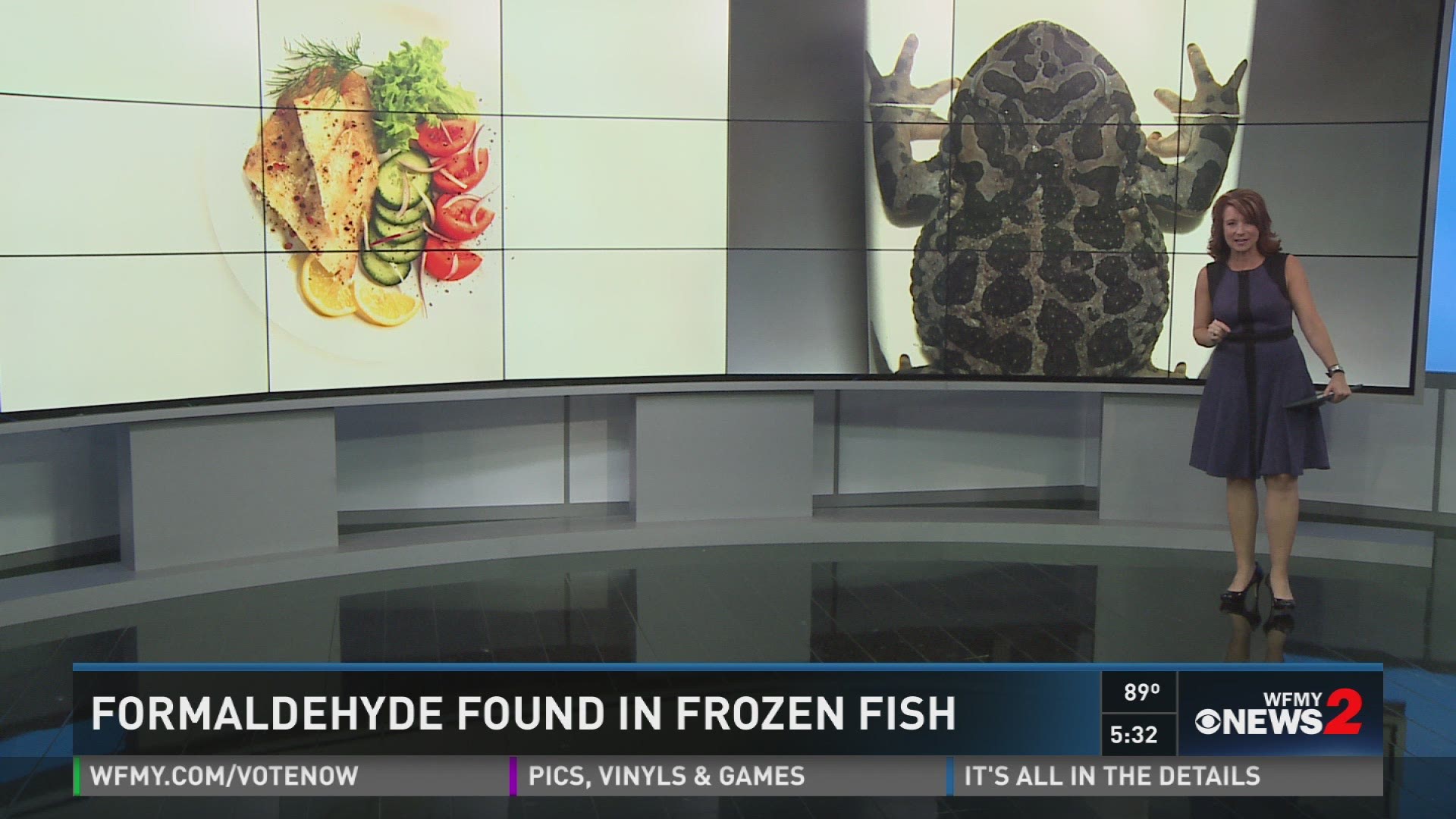GREENSBORO, N.C. - When you think of Formaldehyde probably what comes to mind is the stuff that preserved the dead frogs in science class. It's a chemical you don't want to find in the food on your dinner plate. But 2 Wants To Know investigators broke the news years ago that there is in fact Formaldehyde in some of the frozen fish for sale at your grocery store. The next part of this story, years later, the federal government has finally confirmed those findings. After lots of research and scrutiny, the FDA published a paper confirming what we first told you. That means the problem is officially on the government’s radar and hopeful they’ll come up with a solution.
Eating even one piece of fish contaminated with Formaldehyde every week could have serious side effects.
"Formaldehyde is known to cause cancer in young children it's called birth defects and it's not something I'd want to consume,” said Jason Morton of Appealing Products.
Which is why the scientists at Appealing Products in North Carolina are still testing new fish for the chemical years after 2 Wants To Know helped them first spread the word of their shocking findings.
"It's defiantly a problem that we think still exists today,” Morton said.
And a leading medical journal just accepted the manuscript and is going to publish a paper by FDA researchers which found, "several positive samples."
Federal law bans using Formaldehyde in fish for sale. But testing for it has been expensive and impractical for years. However the FDA says the North Carolina's lab's new quick swab test, "seemed to work well and could facilitate large scale testing."
Which is something the test’s inventor would love to see. But remember, it’s already been two years since we first raised concerns about formaldehyde in fish. And while formaldehyde isn't found in all imported frozen fish, scientists say to protect yourself is to stick to fish raised and caught in the US.
“It doesn't take as long to get from the ocean source or the river to the table, there's no need to add these preservatives,” Morton said.

